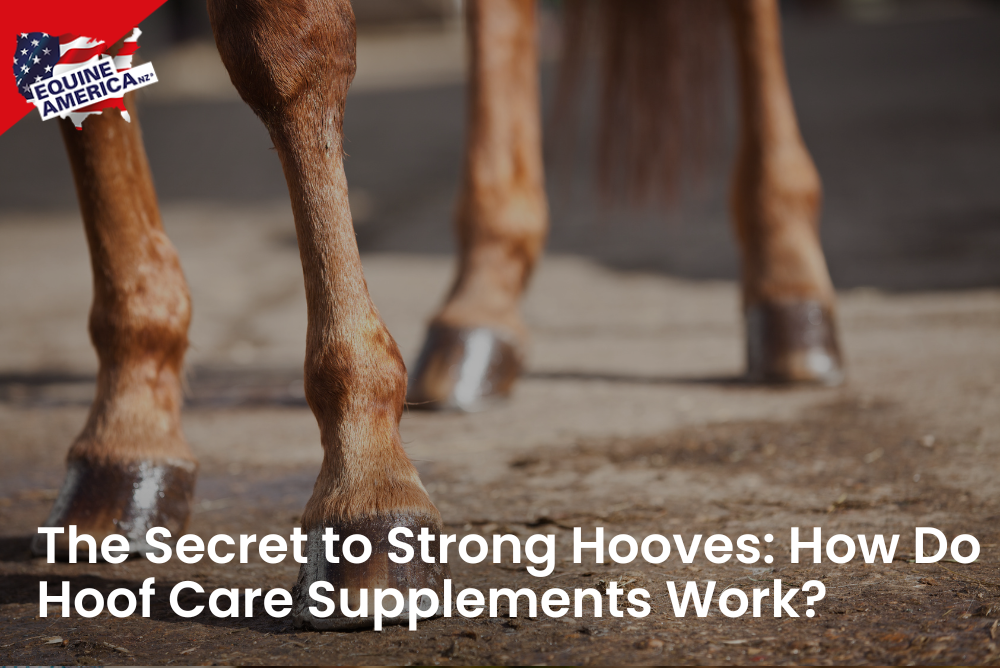Forage Management
Forage plays a crucial role in the diet of horses with respiratory disease. The selection and management of forage can significantly impact the horse's respiratory health. Here are some key considerations:
1. Role of forage in respiratory disease
Forage is a significant source of airborne particulate matter that can aggravate respiratory conditions in horses. It is essential to minimise the inhalation of dust and allergens present in forage.
2. Selecting low-dust forage options
Choosing hay that is less dusty and has longer fibres can help reduce the overall particulate count in the air. It is crucial to test hay for moulds, mildew, and other allergens to ensure it is free from potential irritants.
3. Restricting pasture access
In some cases, limiting pasture access may be necessary to reduce exposure to environmental allergens and irritants. Consult with your veterinarian to determine if restricting pasture time is beneficial for your horse.
4. Soaking or steaming hay to reduce dust and particulate matter
Soaking hay in water or utilising a high-temperature steam chamber can help reduce the airborne particulate associated with airway inflammation. Proper soaking or steaming techniques should be followed to achieve optimal results and avoid mould growth.
Concentrate Selection
The selection of concentrate feeds is another critical aspect of nutritional management for horses with respiratory disease. Consider the following:
1. Impact of concentrate feeds on respiratory disease
Concentrate feeds can contribute to airborne dust and particulate matter in the horse's environment. It is important to choose feeds with low dust content to minimise respiratory irritation.
2. Choosing feeds with low dust content
Select feeds with a recent manufacturing date and store them in climate-controlled conditions to reduce the risk of mouldy feed. Textured diets or feeds like Purina® Omolene® 200 can be dust-free alternatives to some pellet feeds.
3. Proper storage and handling of feeds
Storing feeds in clean and well-ventilated areas can help maintain their quality and prevent contamination. Regularly clean feed storage containers and follow recommended storage guidelines.
4. Soaking or coating feeds to reduce dust
Soaking feeds in water immediately before feeding can help reduce dust, but care should be taken to avoid mould growth. Coating feeds in oil is another option, although it increases the calorie content of the diet and may not be suitable for overweight horses.

Feeding Practices
Proper feeding practices play a crucial role in maintaining respiratory health in horses, especially those with respiratory disease. Alongside selecting the right forage and concentrates, incorporating horse digestive supplements and competition supplements can further support their overall well-being. Here are some essential feeding practices to consider:
1. Feeding from a clean surface at ground level
Feeding horses with respiratory conditions from a clean surface at ground level can significantly reduce the risk of unnecessary particulate inhalation from the ground. Choosing a dust-free surface ensures that your horse is not exposed to additional respiratory irritants during feeding.
2. Avoiding hay nets or pillows
Horses with respiratory disease should avoid feeding from hay nets or pillows. When horses bury their faces in the net to reach hay, they are more likely to inhale increased particulate matter, exacerbating respiratory issues.
Instead, provide hay in a clean and open space, and consider using slow feeders designed to limit hay consumption and minimize dust inhalation. Alongside these measures, incorporating competition supplements can enhance their performance during high-stress activities such as competitions and races.
3. Minimising exposure to particulate matter during feeding
Reducing the overall dust and particulate matter in the feeding environment is crucial for respiratory health. Employing dust-free bedding in the stables and maintaining proper ventilation can significantly decrease respiratory irritation during feeding and other activities.
To support the digestive system and overall health, consider incorporating horse digestive supplements, which aid in nutrient absorption and contribute to a balanced gut microbiome. A well-functioning digestive system allows horses to utilize nutrients efficiently, promoting overall health and resilience to respiratory challenges.
Dietary Supplementation
While the research on dietary supplementation for respiratory disease in horses is limited, certain supplements have shown potential benefits. Consider the following:
1. Role of antioxidants in respiratory health
Antioxidants, particularly vitamins C and E, have been suggested to have a positive impact on respiratory health. Consult with your veterinarian or equine nutritionist to determine if antioxidant supplementation is appropriate for your horse.
2. Considerations for Vitamin C and E supplementation
Vitamin C and E supplementation may help reduce airway inflammation and support the horse's respiratory system. However, proper dosage and duration of supplementation should be determined in consultation with a professional.
Environmental Factors
Beyond nutrition, environmental factors play a significant role in managing respiratory disease in horses. Consider the following:
1. Dust control in the horse's environment
Implementing dust control measures, such as regular sweeping, wetting down surfaces, and using appropriate dust-free bedding, can help minimise respiratory irritants in the horse's environment.
2. Bedding selection and management
Choosing low-dust bedding options, such as dust-extracted straw or shavings, can contribute to a healthier respiratory environment for horses. Regularly cleaning and maintaining bedding also helps reduce the accumulation of dust and allergens.
3. Ventilation and air quality in the barn
Proper barn ventilation is crucial for maintaining good air quality and reducing the concentration of airborne particles. Ensure adequate airflow and consider installing air filtration systems if necessary.
Monitoring and Management
Regular monitoring and effective management of horses with respiratory disease are crucial for their overall well-being and performance. For horses involved in activities such as equestrian sports or racing, maintaining a healthy respiratory system is of utmost importance to ensure peak performance. Here are some essential considerations to keep in mind:
1. Regular veterinary check-ups and respiratory assessments
To proactively manage your horse's respiratory health, it's essential to schedule regular check-ups with your veterinarian. These check-ups should include thorough respiratory assessments to monitor any changes or developments in your horse's condition. Early detection of respiratory issues allows for timely intervention and better treatment outcomes.
Additionally, during these check-ups, discuss with your veterinarian the use of appropriate horse grooming products that promote respiratory health. Proper grooming and maintaining a clean environment can significantly reduce the risk of respiratory irritants and allergens that may affect your horse's breathing.
2. Adjusting diet and management practices based on individual horse's needs
Recognising that every horse is unique, it's crucial to tailor their diet and management practices based on their individual needs. Work closely with your veterinarian and an equine nutritionist to develop a specialized plan that addresses your horse's specific respiratory condition. Adjusting the diet to include high-quality forage, balanced with proper supplements, can play a vital role in supporting respiratory health.
Incorporating horse grooming products designed for respiratory care, such as dust-free bedding and hay, can help minimize the exposure to respiratory irritants and allergens in the stable environment. These products can contribute to maintaining a cleaner and healthier air quality for your horse.
3. Collaboration with veterinarians and equine nutritionists
Managing respiratory diseases in horses often requires expertise from multiple professionals. Collaborate with veterinarians and equine nutritionists who specialize in respiratory health to get valuable guidance and support. They can offer insights into specific management practices, treatment options, and the proper use of horse grooming products that cater to respiratory conditions.
Regularly consulting with veterinary professionals and nutritionists can help you stay informed about the latest advancements in respiratory care and ensure that your horse receives the best possible management and treatment.
Final Thoughts
Proper nutritional management plays a crucial role in supporting horses with respiratory disease. By carefully selecting forage and concentrate feeds, implementing appropriate feeding practices, and considering environmental factors, horse owners can help alleviate respiratory symptoms and improve the overall well-being of their horses. Remember to consult with professionals for personalised recommendations and comprehensive care.
If you’re looking for high-quality equine supplements, consider exploring the range of products offered by us here at Equine America NZ. Our extensive selection of products along with performance-enhancing supplements provide you with suitable options to support your horse’s overall health and performance.
Please give us a call at Equine America NZ today at 0800 440 888 to learn more or leave an enquiry.




